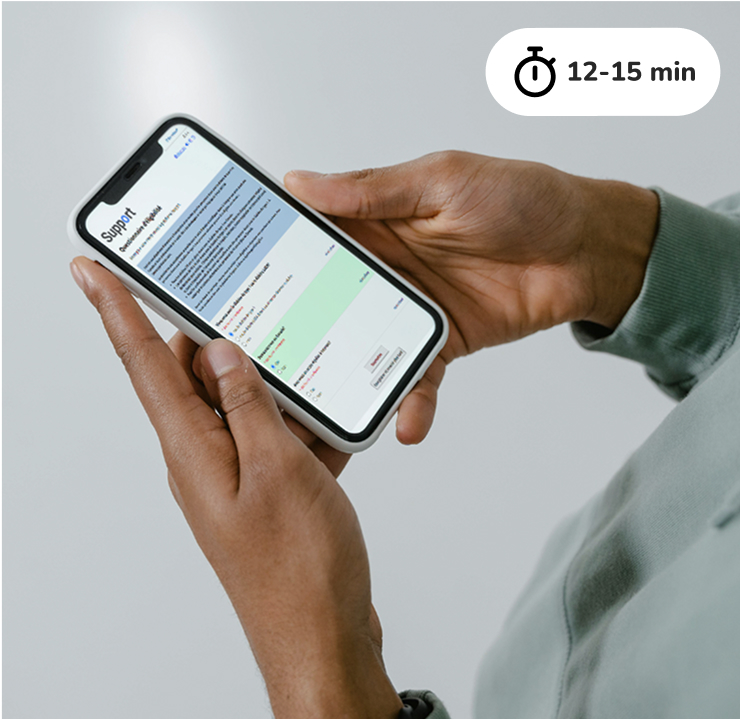2024 ended with the much-anticipated announcement for Canadian users of the Tandem t:slim X2 pump: The Dexcom G7 Continuous Glucose Monitor (CGM) is finally compatible with this hybrid closed-loop system (also known as artificial pancreas)! Exciting news, but other management tools for people living with type 1 diabetes (T1D) are still eagerly anticipated in 2025. For example, many wonder what’s happening with the FreeStyle Libre 3 CGM and the Omnipod 5 insulin pump, which have both already been approved for use in Canada but have not been released by the manufacturers. And what about Ypsomed’s mylife Loop artificial pancreas? Will you be able to get these tools in 2025?
Technologies sometimes take a long time to reach users, even when officially approved by Health Canada, due to numerous administrative, economic, political, and scientific factors (e.g. stricter regulations). It’s the same with new insulins or medications designed to delay the onset of T1D.
However, the wait and being patient, do often pay off! Let’s see what 2025 may hold for us (or not).
Continuous Glucose Monitors (CGMs)

Dexcom G7
As we said, the Dexcom G7 CGM can now be used with the Tandem t:slim X2 pump by updating the software on the Tandem Source platform. In addition, it can connect directly via Bluetooth to the Apple Watch Series 6 (or later) with watchOS 10 (or later), without requiring an iPhone. When the direct connection to the Apple Watch is enabled, you can monitor your glucose levels and receive alerts from your Dexcom G7 on your watch. This is especially handy at places like the movies.

FreeStyle Libre 3
There’s been no new information on the Abbott FreeStyle Libre 3, which was approved in 2023. The company has not provided any launch date for this sensor, which is 60% smaller than version 2. Hopefully, 2025 will be the year this highly anticipated product becomes available.
Insulin Pumps

Omnipod 5 by Insulet
Health Canada approved the automated insulin delivery system Omnipod 5 in April 2024. It will finally be available in the second trimester of 2025, integrated with the Dexcom G6 sensor. Users of the Omnipod Dash version will have priority access to Omnipod 5, which will be the first commercial hybrid closed-loop system without tubing.

Mylife Loop by Ypsomed
In November 2024, Ypsomed and the UK-based software solutions company CamDiab received Health Canada approval for a new artificial pancreas combining the YpsoPump insulin pump, the hybrid closed-loop CamAPS FX algorithm, and the Dexcom G6 sensor (compatibility with G7 coming soon).
According to Ypsomed Canada, 2025 will see the arrival of this system, called mylife Loop. It includes a catheter 30% smaller than those in the three other hybrid closed-loop systems currently available in Canada: Medtronic 670G and 770G, Medtronic Minimed 780G, and Tandem Control IQ. However, no specific launch date has been provided.

Tandem
The mobile bolus app will likely not be available this year, much to the disappointment of Tandem pump users. This app was designed to manage boluses for meals or corrections of hyperglycemia from a mobile phone (all phones should be compatible), rather than going through the pump.
Unfortunately, the Tandem MOBY automated insulin delivery system will also be delayed and will not be available in Canada until 2026. This pump is 50% smaller than the t:slim X2 pump, has a reservoir that holds 200 units of insulin, and is fully controlled by a mobile app.
Insulins

Canada was the first country to authorize the “super slow” basal insulin icodec, from the manufacturer Novo Nordisk. Sold under the name AWIQLI, this very long-acting insulin only requires a weekly injection. For some people living with T1D who use injections, it can replace slow-acting insulins like Degludec (Tresiba®) or Glargine (Basaglar®, Lantus®, Semglee®). Discuss this with your medical team if you’re interested.
According to available studies, this insulin allows for similar average glucose levels to other slow-acting insulins, though it may lead to more hypoglycemic events. People living with T1D who participated in these studies appreciated the weekly injection but regretted not being able to adjust their dose more frequently. The company is conducting further studies to understand which individuals living with T1D may benefit the most from this insulin.
Medications to delay the onset of T1D

We recently discussed the progress made in screening individuals at risk for T1D. The first medication shown to be effective in delaying the onset of T1D in people at very high risk (e.g., the presence of autoantibodies related to T1D), namely Teplizumab, is expected to be approved by Health Canada in 2025. However, its very high cost may limit insurance or government coverage. Additionally, autoantibody screening tests (for antibodies that attack your cells and organs) are not yet available in many Canadian provinces. Our research team is currently conducting a survey to more fully understand the pros and cons of this new approach. You can share your opinion by participating in this survey right now.
What about connected pens?
The arrival of connected or smart insulin pens in Canada remains a mystery, even though they are available in other countries. So, you’ll have to be patient to get your hands on these pens, which can, among other things, record several hundred doses, calculate the time elapsed between injections, and transmit this data to mobile apps. Here’s hoping that next year, maybe Santa will bring them across the border!
Written by: Nathalie Kinnard, scientific writer and et research assistant
Reviewed by:
- Rémi Rabasa-Lhoret, MD, Ph.D.
- Sarah Haag, R.N., B.Sc.
- Claude Laforest, Michel Dostie, Jacques Pelletier and Barbara Kelly, patient partners of the BETTER project
Linguistic revision by: Barbara Kelly






